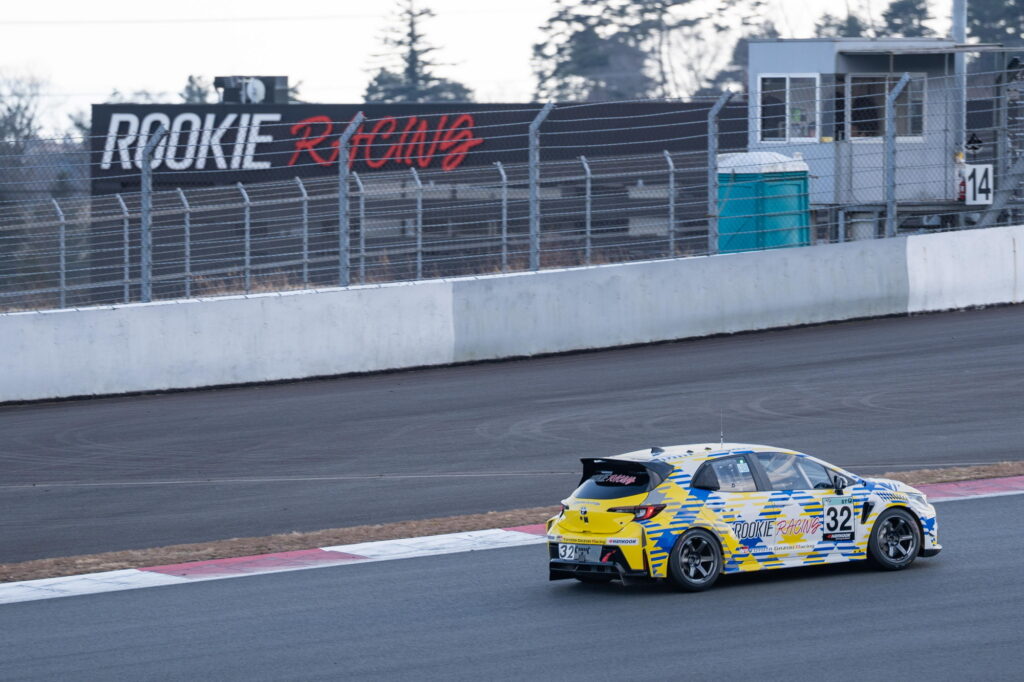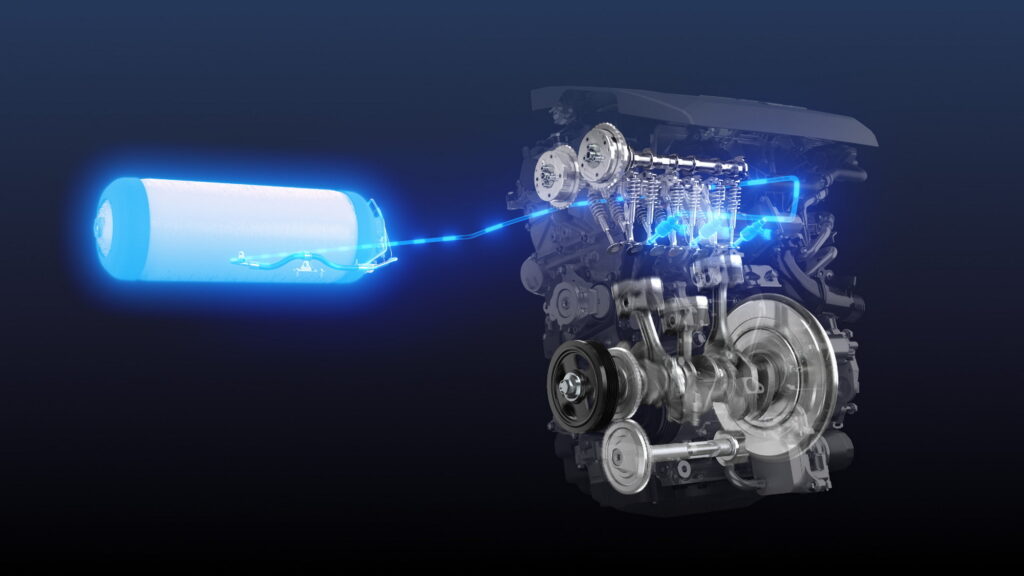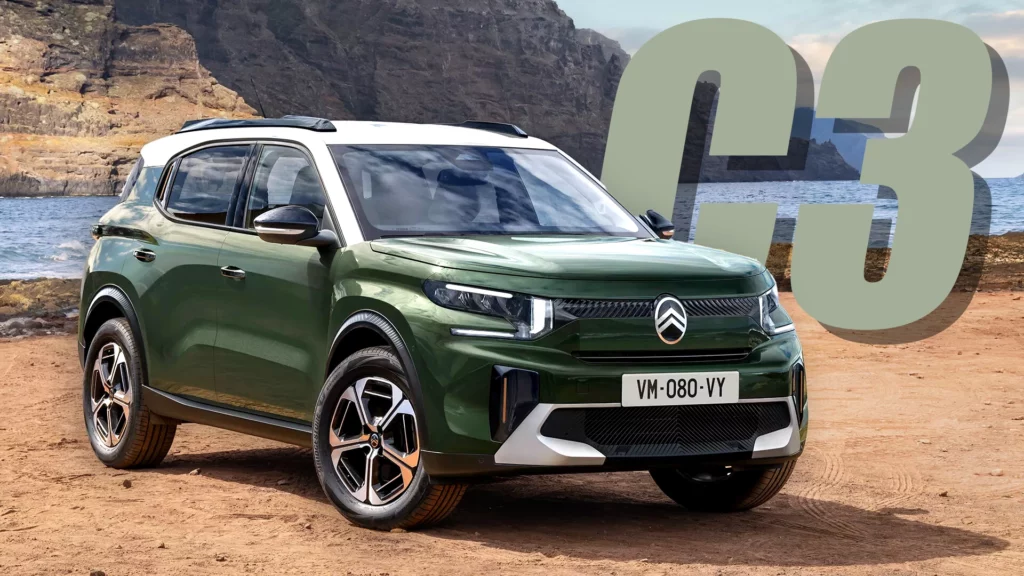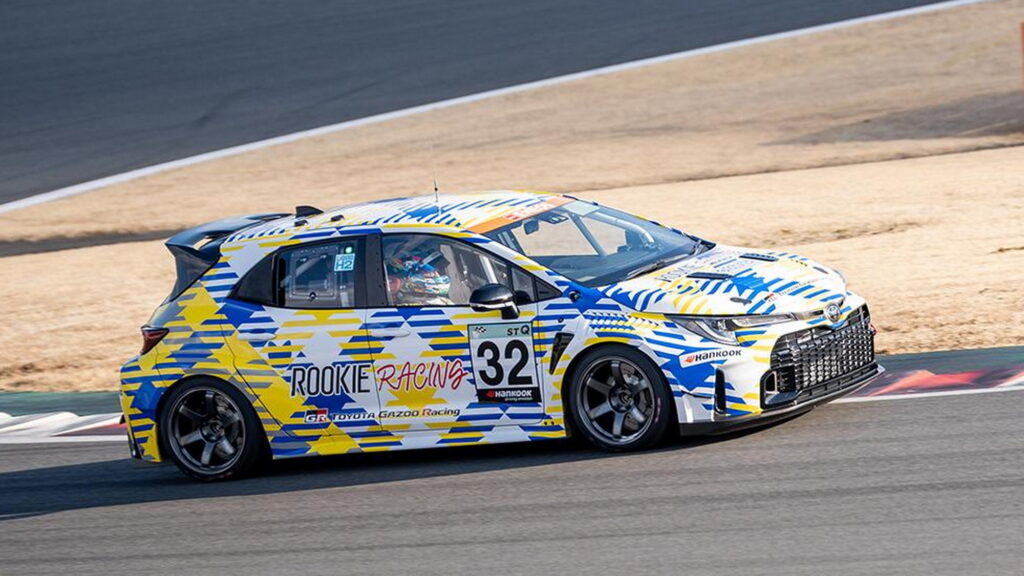Late last month, attendees at the Super Taikyu test run at Fuji Speedway in Japan got to witness the first time a major automotive manufacturer has ever run a racecar on liquid hydrogen.
If the Toyota Corolla in question, and its blue and yellow checkered livery, look somewhat familiar, it’s because Toyota has run the car before. And they’ve run it on hydrogen, but until now, its engine has always run gaseous hydrogen.
“We’re fighting to create a future for the internal combustion engine by tackling a technology deemed unfeasible for cars, in the uncharted territory of -253 °C (-423 °F),” explained Masahiro Sasaki, the car’s driver. “While various hurdles still remain, as with gaseous hydrogen, we hope that our agile development on the racetrack will feed back into everyday cars.”
Read: Toyota Races In Super Taikyu Series With Hydrogen-Powered Corolla And Carbon-Neutral Fueled GR86

The team is hoping to develop the car to the point where it can compete in the 2023 Super Taikyu racing season, which is kicking off later this month. To that end, the car ran three sessions in February, simulating real race conditions, and sharing the track with other racecars.
Moreover, the car had to refuel within designated times, which is one of the challenges and advantages of liquid hydrogen. As a rule, a liquid fuel is more energy dense than a gas, which in the case of a car, helps boost driving range. That also makes the fuel smaller, literally, meaning that fewer transport trucks are required to get it to stations.
In addition, liquid hydrogen needn’t be pressurized, meaning that there’s more design freedom for fuel tanks, which is useful from a packaging perspective. It also means that refueling can be done more easily, which is beneficial in a racing context, because multiple cars can be fueled in succession.
As alluded to by Sasaki, though, keeping hydrogen in a liquid state means that it needs to be cooled to -253 °C (-423 °F) during refueling and storage, which presents its own challenge. Engineers also have to deal with the natural vaporization of hydrogen as the tanks heat up.
Toyota plans on using the Super Taikyu racing series to start working on solutions to these difficulties. That’s what it started doing in March 2022, with a similar Corolla whose engine (borrowed from a GR Yaris) was tuned to run on gaseous hydrogen.
Toyota argues that working to help develop a wide variety of zero-emissions fuels will better help the world kick its fossil fuel habit. Critics maintain, however, that the best way to power the world’s passenger vehicle fleet is with electric vehicles, while these less abundant, but longer-range fuels should be saved for airplanes, trucks, and other industries that can’t easily be electrified.









